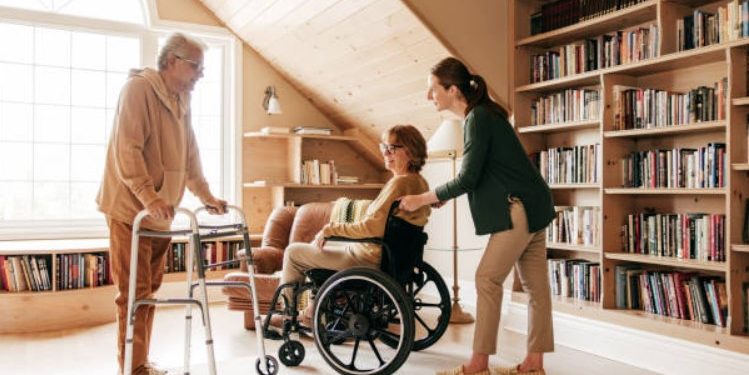A dementia diagnosis affects the person living with the syndrome and their loved ones. The ongoing decline of memory, language, cognition, and problem-solving can feel confusing for the person with dementia and heartbreaking for those around them.
Yet, many people can live for many years with one or more types of dementia, such as Alzheimer’s disease, vascular, Lewy body, or frontal temporal. Also, you can start taking steps following a diagnosis to help your loved one live a full life and ensure they receive the care they’ll need throughout the years.
Here are three helpful steps to take after a parent’s dementia diagnosis.
Step 1: Talk About the Future
Talking about the advanced stages of dementia might not feel easy for you or your parent, but it is a conversation you must have together. As comforting as ignoring the syndrome might be at the time, doing so could cause various challenges in the future, and you’ll wish you’d have taken the time to have the conversation.
Start by encouraging your parent to set a Power of Attorney. It is essential they choose a person they trust, as they must make decisions on their behalf when your parent can no longer do so.
Request your mom or dad to update their will in the early stages of dementia to ensure their wishes are followed to the letter. Also, you may need to discuss any medical wishes, as they may want to refuse certain medical treatments during ill health.
Step 2: Learn About the Different Care Options
Your parent might be capable of living independently right now, but they may become more dependent on others as the disease progresses. You might be more than happy to help, but your mom or dad might one day require around-the-clock care, which you may be unable to provide due to your family, career, or personal responsibilities.
Also, you might sleep better at night knowing they’re in the professionals’ safe and capable hands. If this is the case, turn to assisted living facilities in CT to give your mom and dad more support each day, which could help them maintain their independence for longer. Also, memory care services are available to ensure that every need of your loved one is catered to in the senior living facility. Usually, reputed centers — think village at kensington place — have specially trained, passionate caregivers to ensure that the elderly feel at home.
Step 3: Find Out More About Dementia
Dementia can cause various cognitive changes as the disease progresses, which might lead to your parent developing challenging behaviors, such as:
- Angry or emotional outbursts
- Aggression
- Paranoia
- Inappropriate behavior
Understanding dementia will make it easier to counteract various challenges a loved one displays. For instance, you can combat emotional outbursts with patience, understanding, and a calm demeanor.
Dementia cannot only affect a person’s behaviors, but it can cause changes to their mental and physical health. People with dementia are more likely to develop a low mood or depression. Help your parent remain in good health by encouraging them to follow a healthy, active lifestyle, attend essential medical appointments, and visit a doctor to immediately resolve any health issues, especially urinary tract infections (UTIs).

